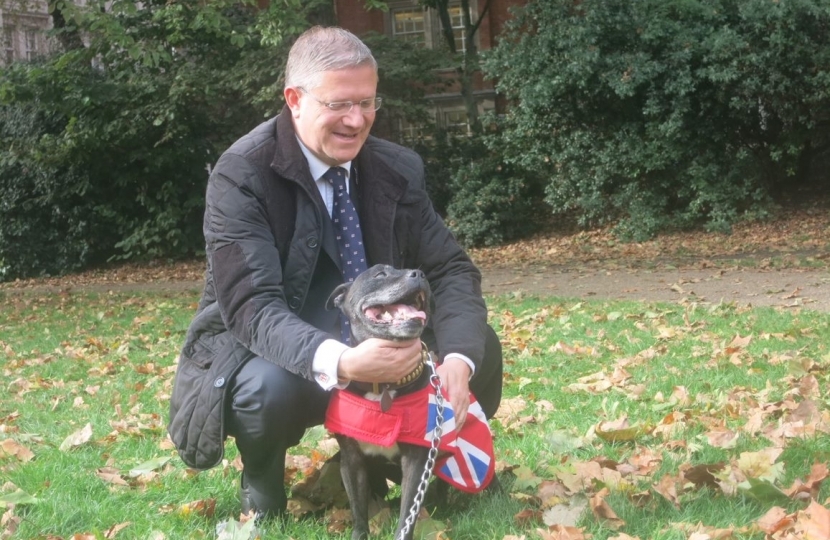
Andrew Rosindell will today call penalty notices "the next step in establishing the UK as a world leader in animal health and welfare" in a speech as part of the Second Reading of his Private Members' Bill establishing a new system of fines for animal health and welfare offences.
The Government-backed Bill will bring into legislation fines of up to £5,000 for offences that already exist under a wide range of primary legislation on animal health and welfare, including the Animal Health Act 1981 and the Animal Welfare Act 2006. The Government Minister for Animal Welfare Zak Goldsmith has said the fines would be an “important deterrent.”
This will fill an enforcement gap between warning letters and improvement notices on the one hand and criminal prosecution on the other hand. However, Mr Rosindell will say in his speech that “for the most severe crimes, criminal prosecution will always be the most appropriate course of action.”
By paying the fine, offenders would avoid prosecution for the original offence. If paid within 14 days, the fine will be halved.
When issuing penalty notices, enforcement agencies will be required to take into account a range of matters, such as seriousness of the conduct to which the proposed notice relates and any evidence of intention behind the relevant conduct.
The Bill has received support across Parliament and across the farming, companion animal, and zoo and aquarium industries.
Commenting, Andrew Rosindell M.P. said:
"Chris Loder's Private Members' Bill was a historic measure to beef up our animal health and welfare legislation increasing the maximum prison sentences to five years for the most heinous acts against animals.
However, there remains a gap in our enforcement of animal health and welfare legislation, as authorities have no bespoke tool to respond appropriately to each transgression. Penalty Notices are a simple measure with a big impact.
My Bill will create quick and efficient fines of up to £5,000 to be issued to offenders, further showing that the England after Brexit will be a world leader in animal welfare."
Animal welfare minister Lord Zac Goldsmith said:
“There is no place for animal cruelty in our society and this Government is committed to ensuring those who abuse animals are subject to the full force of the law.
These fines will act as an important deterrent and introduce greater protections for animals from harmful behaviour.
As part of our Action Plan for Animal Welfare we are going even further to raise our world-leading animal health and welfare standards and I will continue to work with Andrew Rosindell MP as we progress this important Bill through Parliament.”
Dr Jo Judge, CEO of the British and Irish Association of Zoos and Aquariums (BIAZA) said:
“Good zoos and aquariums are leading the way on animal welfare and unanimously support strong and effective animal welfare laws.
It is clear that this Private Members Bill addresses a gap that currently sees too many offenders get away with mistreating animals.”
RSPCA Head of Public Affairs and Campaigns, David Bowles, said:
“The RSPCA welcomes the introduction of the Animals (Penalty Notices) Bill. By expanding the range of animal offences that enforcement agencies can use Fixed Penalty Notices for, it will provide a new and quicker way to enforce some of the most widely used animal welfare laws - and so has the potential to make a real difference for animal welfare in England.
Fixed Penalty Notices can be a useful, additional, tool for enforcement agencies to use to tackle cruelty towards animals. They can enable action to be taken to address an issue without having the costs, time and animal welfare impacts of waiting for a court case.
We look forward to the Bill progressing and to working with Andrew Rosindell MP and the Government to make sure it is as effective as can be.”
Professor Jonathan Statham, Chair Elect of the Animal Health and Welfare Board for England said:
“Penalty notices offer an opportunity for early redirection of poor animal health & welfare conditions in order to prevent more severe offences developing.
It is important that we maintain and enhance the health & welfare of animals in England and support a timely and proactive approach alongside advice and guidance that can deliver high standards for the long term.”




